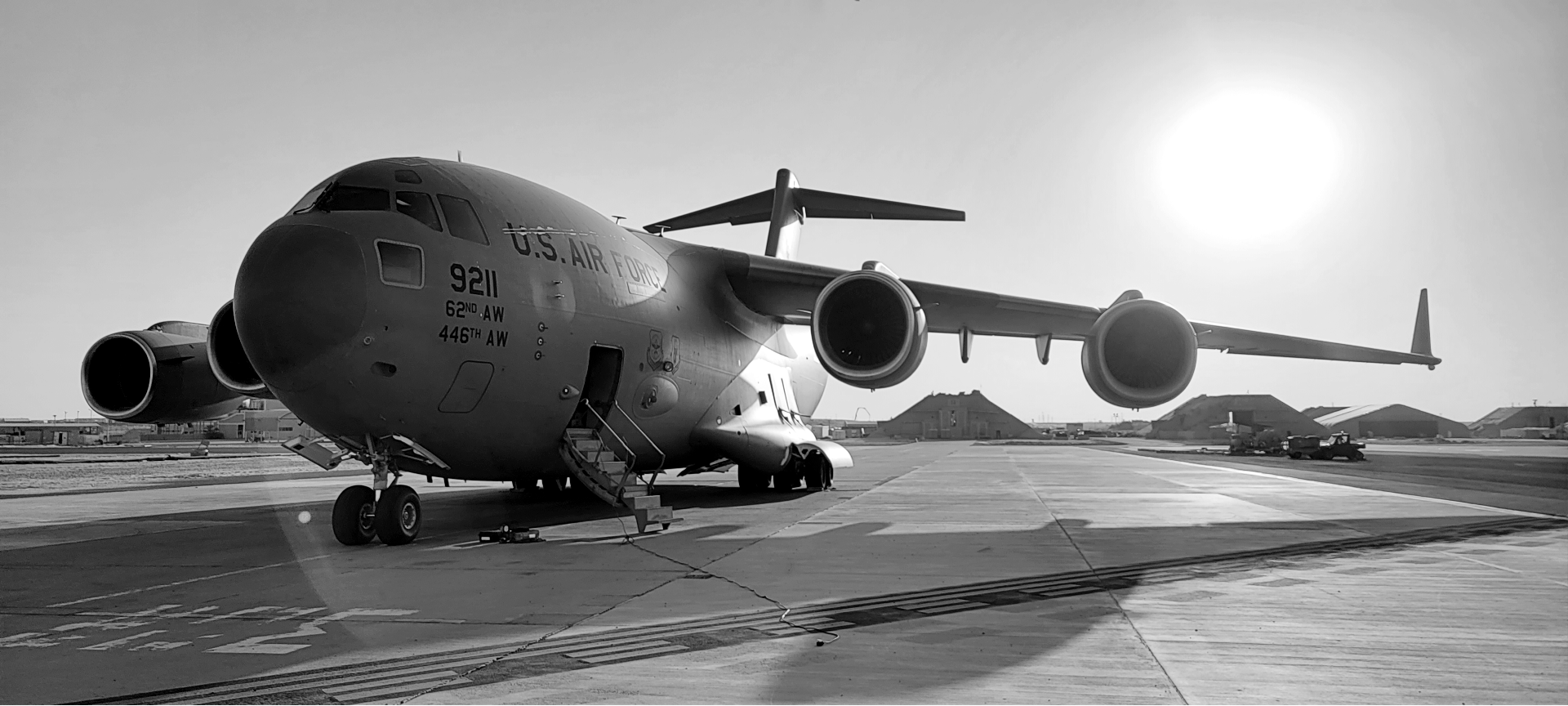The 728th Airlift Squadron traces its history back to Geiger Field near Spokane, Washington. Activated on June 1st, 1943 as the 728th Bombardment Squadron, the 728th began flying the B-17 Flying Fortress and deployed to the European Theatre of Operations. In January, 1944 the 728th made its home at RAF Deopham Green and began operations on February 4th, 1944, striking an aircraft assembly plant near Brunswick.
The 728th participated in numerous strategic and tactical bombing missions, including airfields, V-weapon launching sites, bridges and other objectives in preparations for Operation Overlord, the Allied invasion of Normandy. The 728th bombed enemy positions to support Operation Cobra, the breakout at Saint Lo in July, 1944 and the attacks on Brest, France in August, 1944. It supported Operation Market Garden, the airborne attacks in the Netherlands in September and, during the Battle of the Bulge, struck German lines of communication.
The 728th also struck an airfield to support Operation Varsity, the airborne assault across the Rhine. Shortly before the end of the war, on April 7th, 1945, the 728th struck the jet fighter base at Kaltenkirchen, pressing the attack despite strong fighter opposition and earning itself a Distinguished Unit Citation. It flew its last mission of the war on April 21st, 1945, against marshalling yards at Ingolstadt.
Following VE-Day, the 728th was deactivated before beginning its life as a USAF Reserve squadron, operating in the Korean War and flying the B-26 Invader, focusing on nighttime bombardment missions.
The 728th Bombardment Squadron would transform further as the 728th Tactical Reconnaissance Squadron, and ultimately begin a proud airlift legacy as the 728th Troop Carrier Squadron. In March of 1968, the 728th again found a new home at Norton Air Force Base, California, as the 728th Military Airlift Squadron and operated the C-124 Globemaster II and the C-141 Starlifter.
The 728th participated in Operation Homecoming, repatriating the American prisoners of war from Southeast Asia, and Operation New Life which supported the evacuation of orphans and other refugees from Vietnam to the United States. In 1989 the 728th flew numerous missions in support of Operation Just Cause in Panama and flew airlift missions into Southwest Asia in support of Operations Desert Shield and Desert Storm in 1991.
In January, 1992, the 728th took on its current life as the 728th Airlift Squadron and transferred to McChord Field, Washington. Chosen as the first USAF Reserve squadron to receive the C-17 Globemaster III, the 728th Airlift Squadron has participated in virtually every major global operation to include Operations Enduring Freedom, Iraqi Freedom, Resolute Support, and Freedom’s Sentinel as part of the Global War on Terror.
On March 26th, 2003, the 728th was a key participant in Operation Northern Delay, the combat airdrop of more than 950 paratroopers from the 173rd Airborne Brigade into Northern Iraq and the last combat parachute operation to date.
Additionally, the 728th is constantly instrumental in Operation Deep Freeze, the challenging resupply of the National Science Foundation’s United States Antarctic Program research facility at McMurdo Station, Antarctica.
To date, the 728th continues to answer the call and provides time sensitive airlift of cargo and personnel to every corner of the globe to support world wide operations.
